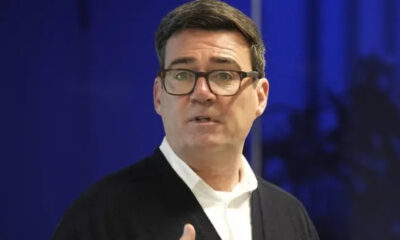Business
Strategies for Public Service Executives Facing Budget Cuts

Public service executives are confronting a challenging landscape as many departments anticipate significant budget cuts over the next three years. With morale at an all-time low, leaders must navigate this period of austerity with a focus on their staff, the mission of their organizations, and their own well-being.
Daniel Quan-Watson, a former deputy minister and CEO within the federal public service, offers valuable insights into effective leadership during these uncertain times. He emphasizes that leaders should prioritize three key aspects: their people, the organization’s mission, and personal self-care.
Fostering Compassion and Understanding
Quan-Watson recalls the dedication of executives during the Deficit Reduction Action Plan under then-Prime Minister Stephen Harper. He highlights a poignant moment when an executive chose to personally inform staff about impending job losses, stating, “I owe it to them, because they know me and trust me.” Such acts of compassion leave a lasting impact on employees, who remember the leadership displayed during difficult times.
In environments marked by fear and uncertainty, leaders must demonstrate compassion and understanding. The emotional toll of potential job losses can lead to feelings of anger, betrayal, and distrust among staff. However, creating a safe space for employees to express their feelings can foster a more empathetic workplace. Executives who listen and validate staff concerns are more likely to build trust, which is essential for maintaining morale.
Communicating Effectively and Building Trust
Effective communication becomes critical when navigating budget cuts. Quan-Watson advises leaders to recognize that traditional communication methods may falter in times of crisis. Employees are more likely to interpret messages through the lens of their fears and uncertainties, making it essential to repeat key messages and clarify any misunderstandings.
Maintaining consistency and clarity in communication is vital. Leaders should keep messages simple and stick to a consistent narrative. Stress often leads employees to scrutinize even minor discrepancies in communication, assuming they hold deeper significance. Thus, executives must be clear and honest, avoiding speculation about uncertain outcomes. Phrases like “I don’t know” or “I will find out and get back to you” can bolster trust.
Furthermore, self-reflection is an important aspect of leadership during challenging times. Quan-Watson notes that many executives feel an innate desire to fix everything, but they must recognize their limitations. Honest self-assessment can help leaders understand what they can change and what they must accept.
Self-care is also crucial, especially in high-stress environments. The Public Service Health Care Plan provides resources for confidential counseling, which leaders should utilize for their own well-being. Acknowledging personal needs is not just beneficial for the individual but also for the organization as a whole.
As public service executives navigate the turbulence of budget cuts, they must remember that their actions will be remembered by their teams. Compassion, clear communication, and self-care will enable leaders to guide their departments through this period of austerity while preserving trust and morale.
-

 Politics3 months ago
Politics3 months agoSecwepemc First Nation Seeks Aboriginal Title Over Kamloops Area
-

 World7 months ago
World7 months agoScientists Unearth Ancient Antarctic Ice to Unlock Climate Secrets
-

 Top Stories1 month ago
Top Stories1 month agoUrgent Fire Erupts at Salvation Army on Christmas Evening
-

 Sports1 month ago
Sports1 month agoCanadian Curler E.J. Harnden Announces Retirement from Competition
-

 Lifestyle5 months ago
Lifestyle5 months agoManitoba’s Burger Champion Shines Again Amid Dining Innovations
-

 Top Stories2 months ago
Top Stories2 months agoFatal Crash on Highway 11 Claims Three Lives, Major Closure Ongoing
-

 Entertainment7 months ago
Entertainment7 months agoTrump and McCormick to Announce $70 Billion Energy Investments
-

 Science7 months ago
Science7 months agoFour Astronauts Return to Earth After International Space Station Mission
-

 Lifestyle7 months ago
Lifestyle7 months agoTransLink Launches Food Truck Program to Boost Revenue in Vancouver
-

 Technology5 months ago
Technology5 months agoApple Notes Enhances Functionality with Markdown Support in macOS 26
-

 Top Stories1 month ago
Top Stories1 month agoBlue Jays Sign Kazuma Okamoto: Impact on Bo Bichette’s Future
-

 Top Stories2 months ago
Top Stories2 months agoNHL Teams Inquire About Marc-André Fleury’s Potential Return





















